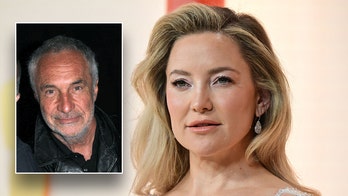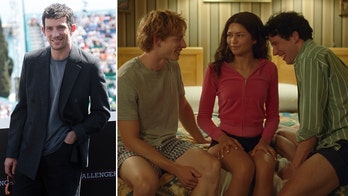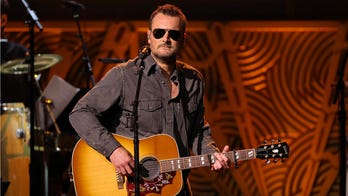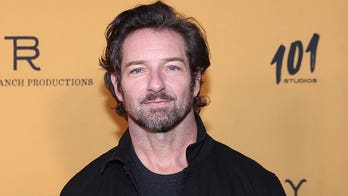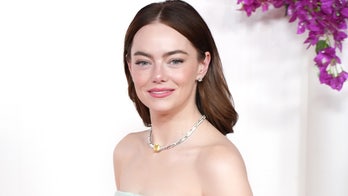Should we fear artificial intelligence? Connor Leahy touches on human skepticism of AI
Connor Leahy advises whether humans should be fearful of artificial intelligence or not and where AI is expected to be in the future
When James Dean died in a car accident in 1955, his burgeoning career was cut short with just three completed films to his name, "Rebel Without a Cause," "East of Eden," and "Giant."
Still, Dean remains a constant figure in Hollywood, referenced and often imitated by many across the decades.
Now, with the use of generative AI, the BBC is reporting that Dean’s career can continue in a new film called "Back to Eden," a science fiction story about a journey across the United States with Dean.
For stars like Dean, Marilyn Monroe, Michael Jackson, or other beloved entertainment icons who left the world too soon, AI is an intriguing prospect in continuing their career.
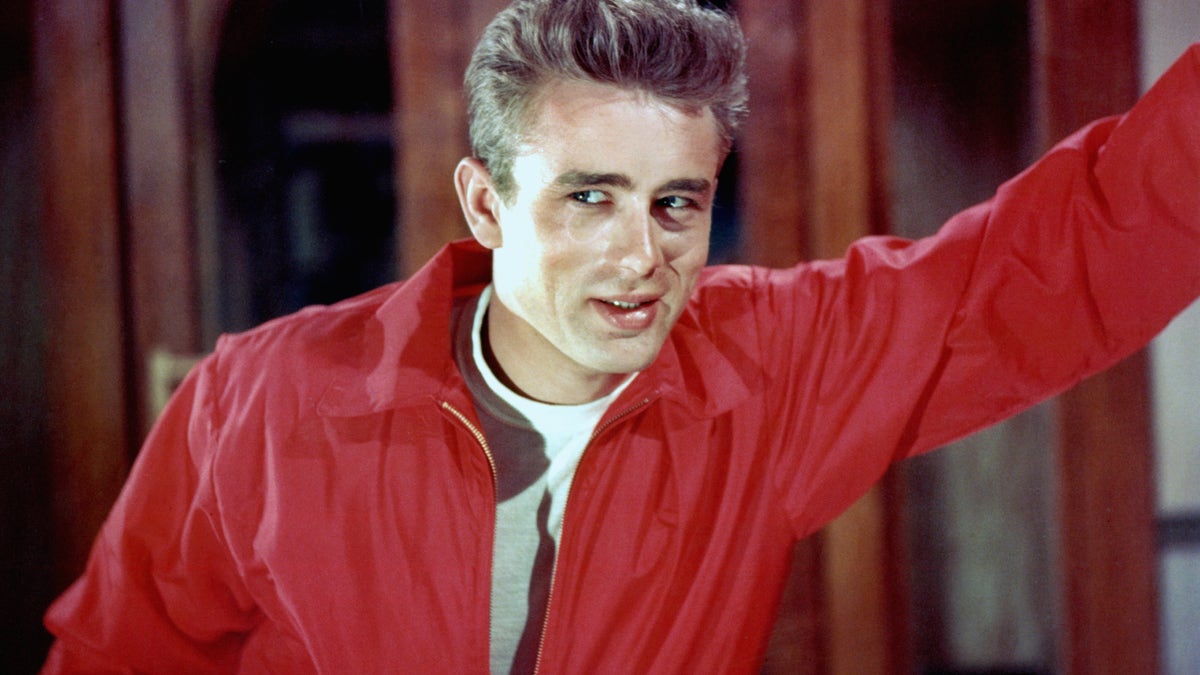
The BBC reports that James Dean is set to appear in an upcoming movie using artificial intelligence. (Michael Ochs Archives/Getty Images)
REMEMBERING MARILYN MONROE, ACTRESS, FASHION ICON, AND SEX SYMBOL 60 YEARS AFTER HER DEATH
"For stars who have had their life cut short, AI is definitely an opportunity to bring them back from the dead and they can be [re]created as a new performance, which really could just build on their legacy," Marva Bailer, an AI advisor, told Fox News Digital.
In one example, Bailer noted that the Michael Jackson hologram that debuted in 2014 was an expensive endeavor, "what they got in return was a whole new slew of fans and in a positive way. And so that really kind of maybe changed the idea" of what was possible.
However, there are still concerns over consent, compensation, and the overall usage of AI to resurrect dead celebrities.
According to Kristen Ruby, CEO and Founder of Ruby Media Group, "Realistic digital replicas will soon be so good that you won’t know if you are listening to a celebrity or a dupe. In the near future, real media will become virtually indistinguishable from synthetic media, making it difficult to ascertain authentic media from duplicate media created with Artificial Intelligence. This actually erodes someone’s legacy instead of preserving it."
There’s also the question of fan interest and how long a celebrity can remain popular—and profitable—after their death.
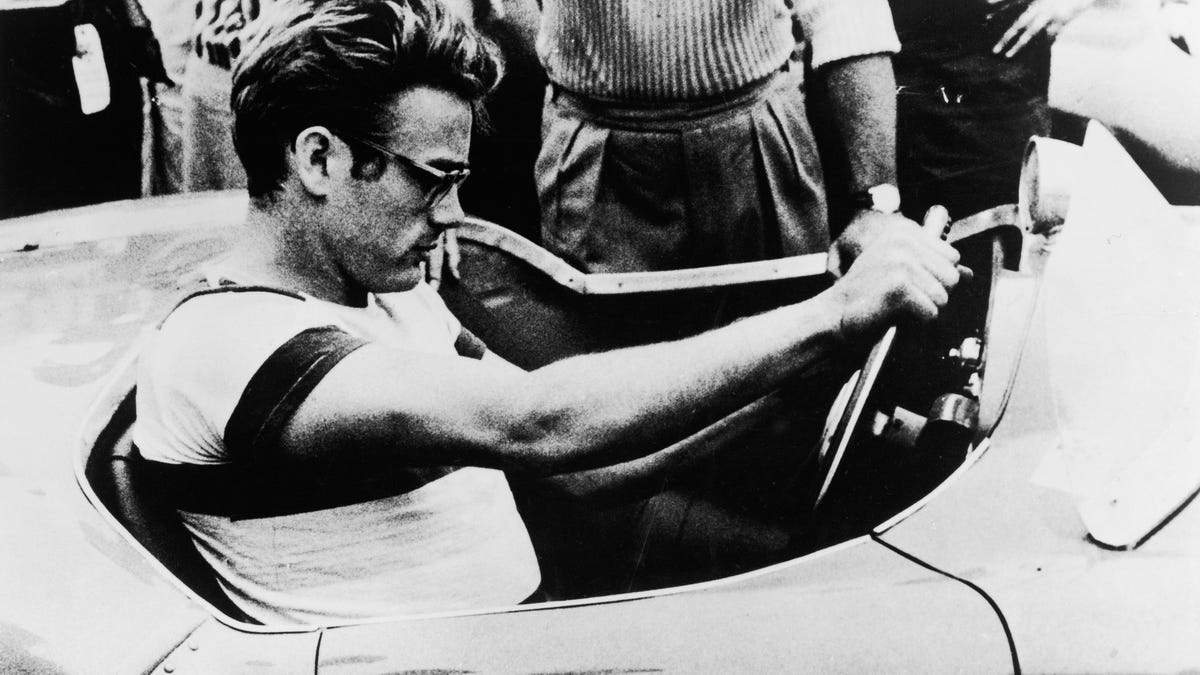
James Dean died in a tragic car accident at age 24 in 1955. (Warner Bros. courtesy of Getty Images)
WHO OWNS THE LOST JAMES DEAN PORSCHE?
"The question of economics and fans… really it's going to be [up] to the stars because people align with different brands and fans when they hear a song or they see an old movie clip," Bailer said. "So it really can be from any source where this new content is created."
She continued, "What we need to be keeping an eye out on is what the artist is interested in and what their estate is interested in, as well as there are a whole slew of agents and guilds and other people that really govern their image and likeness. So, if they're open to doing new projects and new ideas, then that makes it perfect for both the fan and the artist."
"There's going to be room for a new James Dean, a new Marilyn Monroe, a new Laurence Olivier, a new Michael Jackson. And what people can really align with these stars and these holograms and new images, [is] There's creating a new performance and really just a new life for that image."
Ruby is less convinced that celebrities from decades before will continue to draw interest for younger generations.
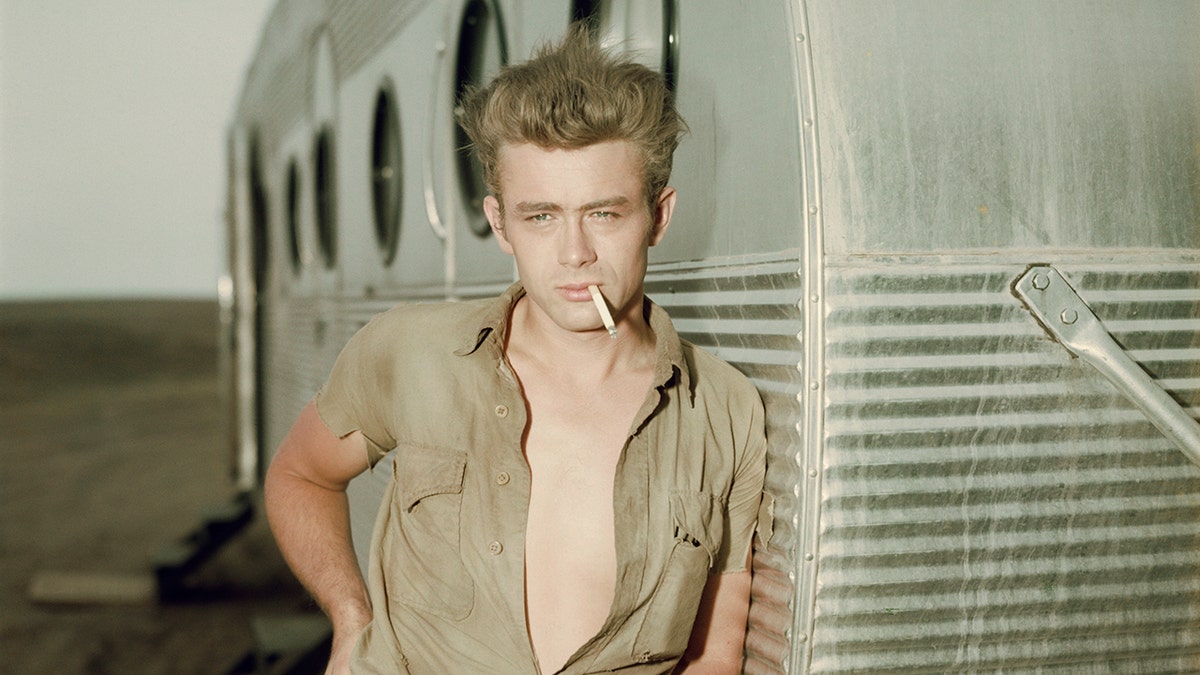
James Dean has remained a popular icon decades after his untimely death, and with only three completed films to his name. (Hulton Archive/Getty Images)
WHAT IS ARTIFICIAL INTELLIGENCE (AI)?
"Upcoming generations are more interested in seeing themselves as the star than with worshiping someone else as one," she explained. "This is a seismic shift that has been precipitated by the influencer marketing industry, which has eaten into the traditional Hollywood celebrity appeal. Growing up, popular magazines used to run features that said, ‘stars, they are just like us.’ Now, a lot of that has been replaced with influencer brand endorsement deals. People want to be more like influencers than celebrities."
"We will have less movie stars and more social media stars. That is the future," she added.
The recent announcement of Dean’s digital return isn’t the first time the issue has come up.
In 2019, The Hollywood Reporter reported that Magic City Films announced that Dean would appear in a role in their film "Finding Jack."
At the time, Mark Rosesler, the attorney and business agent for the Hollywood star’s family told Fox News exclusively, "James Dean was perhaps the greatest actor of all time and is admired by fans around the world. Despite his untimely death at the age of 24, technology allows us to continue to honor Jimmy’s legacy and inspiration to so many people."
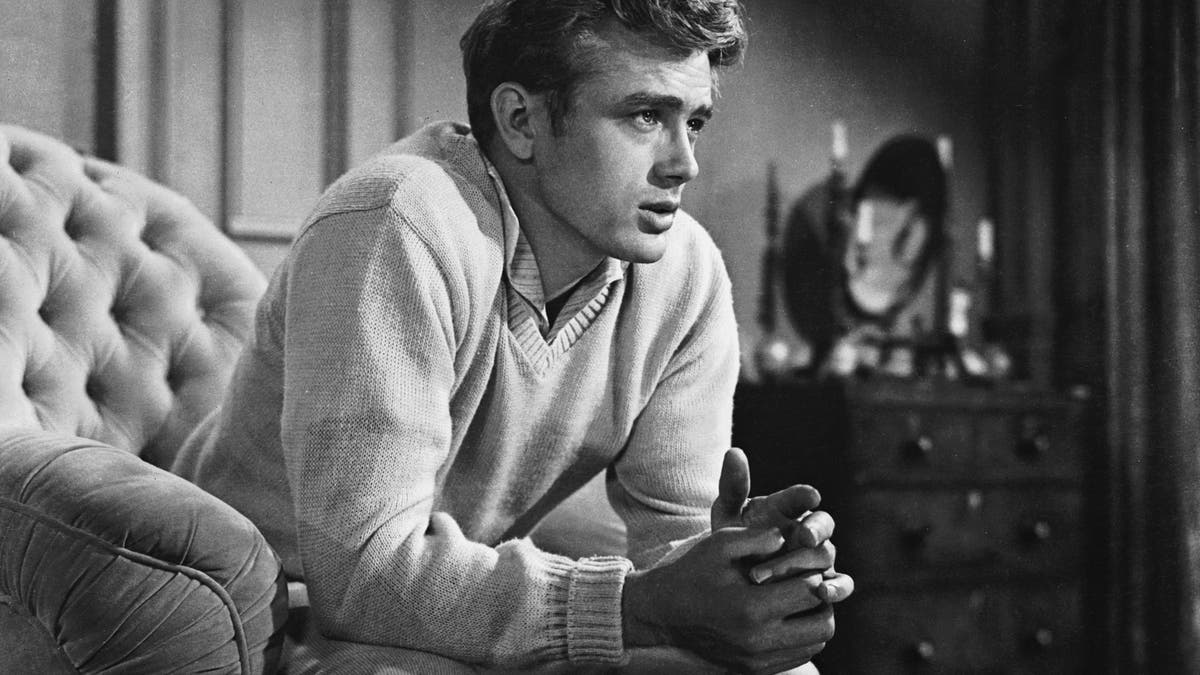
James Dean in a scene from "East of Eden," one of the two movies he received a posthumous Oscar nomination for, the other being "Giant." (John Kobal Foundation/Getty Images)
JAMES DEAN'S FAMILY REACTS TO LATE ACTOR'S CGI CASTING CONTROVERSY
"We have represented his family for 38 years and they are confident that Jimmy’s rebellious and trailblazing personality is consistent with being the first to fearlessly embrace this new technology for Hollywood," Roesler continued. "They are excited to be part of keeping his memory alive."
The film ultimately fell through, but reaction from Hollywood was angry at the time, well before the current issues propelling the strikes by the WGA and SAG-AFTRA and despite the family's ok.
"Lord of the Rings" star Elijah Wood shared on X, then Twitter, "NOPE. this shouldn’t be a thing."
"Knives Out" star Chris Evans also expressed his disapproval, writing, "This is awful. Maybe we can get a computer to paint us a new Picasso. Or write a couple new John Lennon tunes. The complete lack of understanding here is shameful."
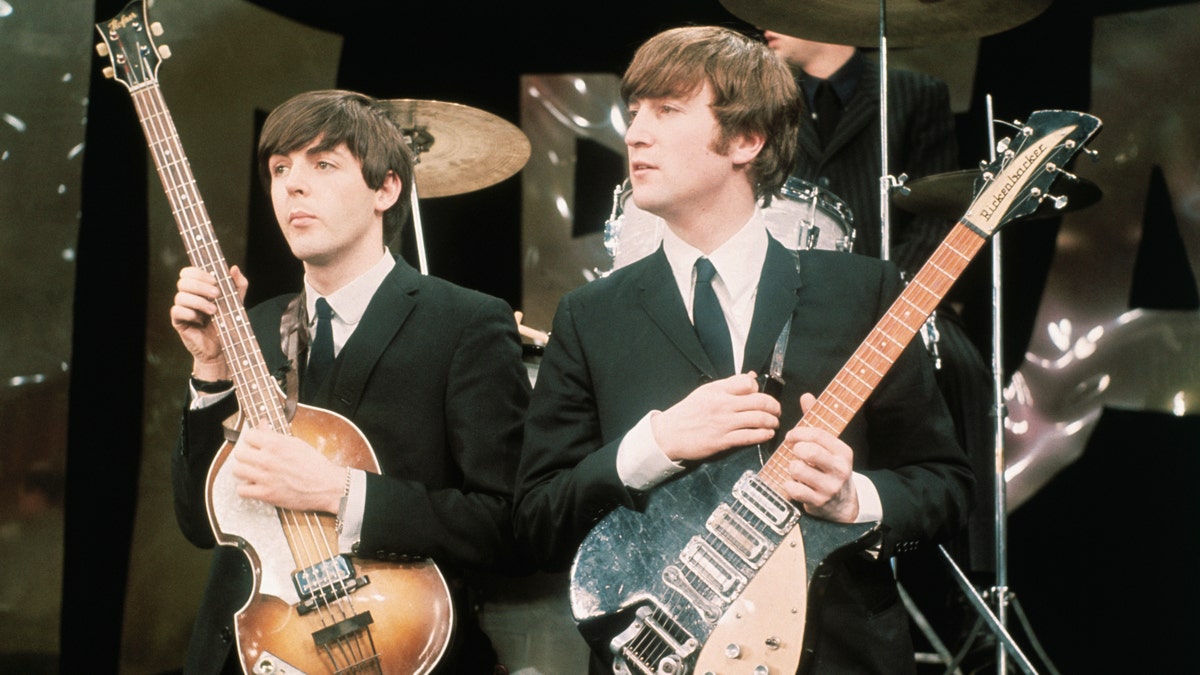
Paul McCartney upset Beatles fans with the announcement of an AI-generated Beatles song that would feature John Lennon. (Bettmann)
Evans’ mention of Beatles legend John Lennon ended up becoming somewhat of a reality, but not in the hands of just any creator, but fellow Beatle Paul McCartney.
Earlier this year, McCartney told BBC Radio 4’s Today show that there was a new final song from the band in the works, with the assistance of AI.
"When we came to make what will be the last Beatles record it was a demo that John had – that we worked on and we just finished it up – it'll be released this year. We were able to take John's voice and get it pure through this AI so that then we could mix the record as you would normally do," McCartney said.
After some backlash from fans, McCartney clarified that Lennon’s vocals were original and not generated by computer.
"We've seen some confusion and speculation about it," he shared to X. "Can’t say too much at this stage but to be clear, nothing has been artificially or synthetically created. It’s all real and we all play on it. We cleaned up some existing recordings – a process which has gone on for years," he assured angry fans.
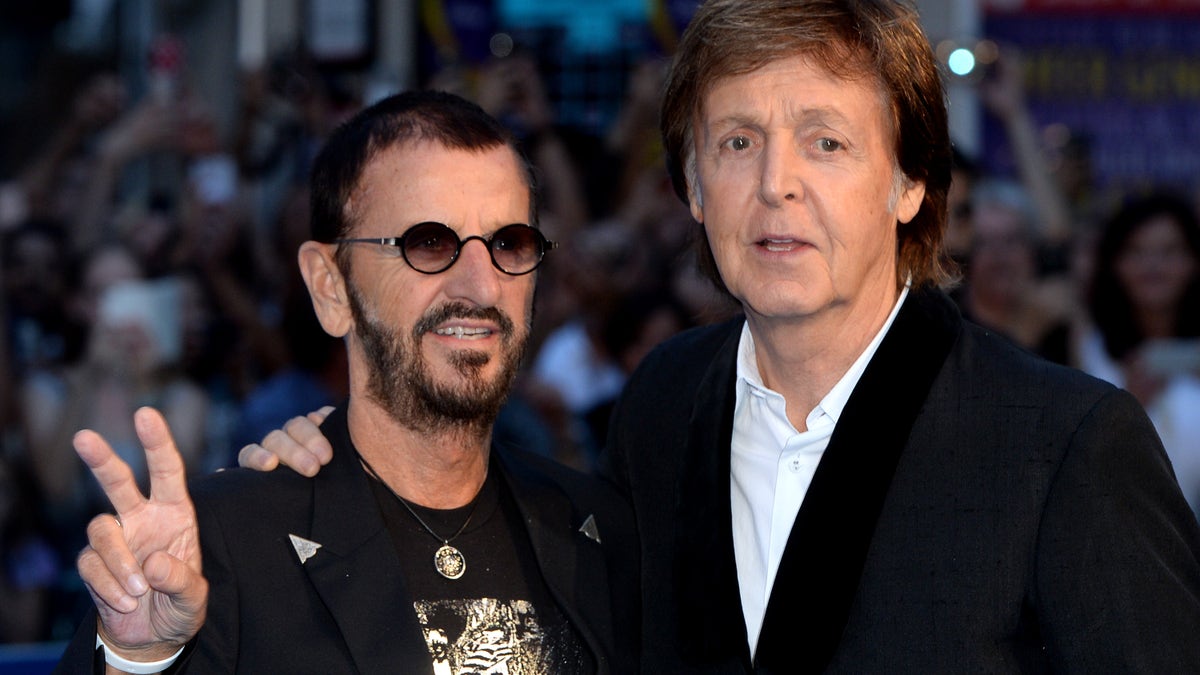
The last two surviving Beatles, Ringo Starr and Paul McCartney, have made it clear that there is nothing artificially generated about their late bandmate John Lennon's voice in a new song, set to be released later this year. (Getty Images)
Bailer noted two key differences in the Lennon recreation, compared to general concerns from fans and the industry, are the fact that McCartney not only had permission, but is involved in the estate, and that the vocals were not newly created by AI.
"In the Paul McCartney scenario, what they're actually doing is they're using the voice as an instrument," Bailer explained. "So they took some grainy old tape and they then used that content with new songs, and then they really recreated the voice to be part of this new song."
She added, "What has been the concern of the public has been more the opposite… which is the deep fakes, and that's where people are using the likeness, the voice, the performance, unauthorized. And that is not okay."
Fans are certainly vocal about how celebrities behave and perform while alive and after they’ve passed away and are often as if not more vigilant about protecting their image than those who control it.
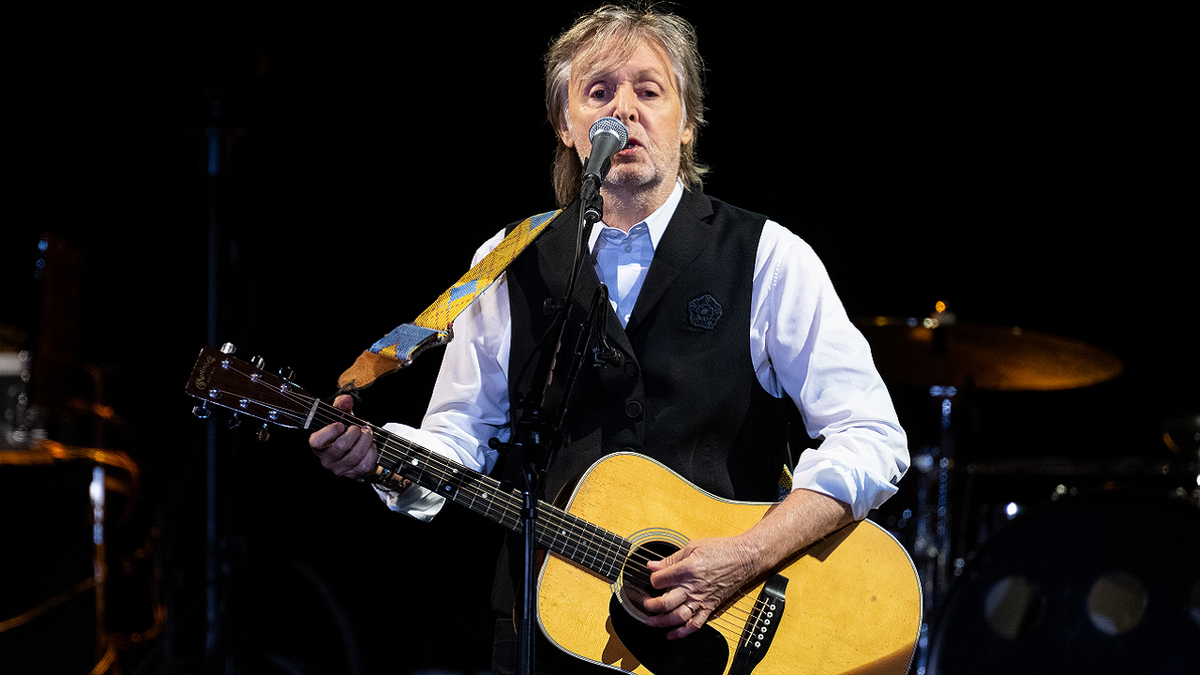
Paul McCartney has plenty of say still in the Beatles' estate, but fans still expressed concern over the use of AI for a new song. (Harry Durrant/Getty Images)
PAUL MCCARTNEY REVEALS HE 'DREAMS' ABOUT THE LATE JOHN LENNON: 'THEY'RE ALWAYS GOOD'
"I'm not a lawyer, but fans are absolutely a great signal because take it from me, if you're a patent and trademark lawyer, it is so hard to find all these likenesses," Bailer said. "Think of craft shows, websites, gaming and all these creative outlets that people choose to use their clients’ likenesses [for], so if fans are on the lookout, good for them."
There’s always the possibility that a fan could disapprove of a family or estate’s usage of the celebrity’s likeness and take legal action, but Ruby doesn’t see a future where that’s a regular occurrence.
"This is America – anyone can try to sue for anything. But it’s hard to imagine a judge saying the fans had standing to sue anyone," she said.
Some celebrities have already taken action to control their likenesses after death, including Dolly Parton and Whoopi Goldberg, who both are against the notion of holograms or other AI generated usage after they’re gone.
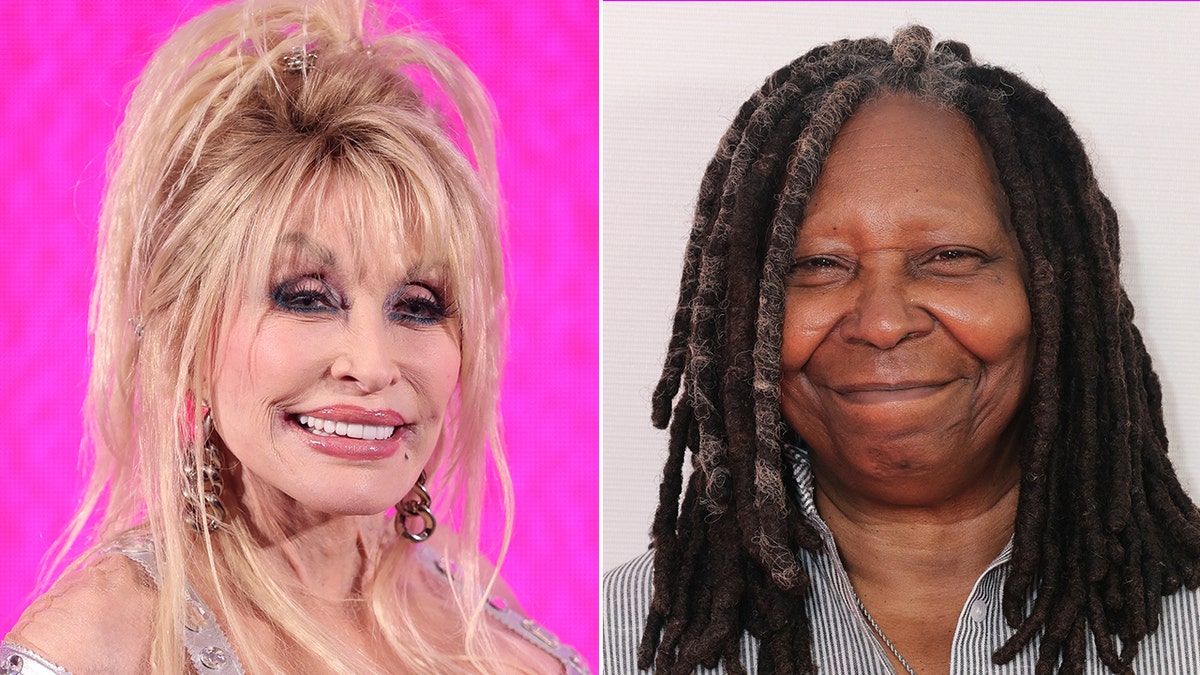
Dolly Parton and Whoopi Goldberg are not interested in being immortalized creatively after death. (Mike Marsland/Michael Loccisano)
CLICK HERE TO SIGN UP FOR THE ENTERTAINMENT NEWSLETTER
The late Robin Williams also reportedly has a clause in his will stating his likeness cannot be used for 25 years after his death, according to the BBC.
"Celebrities absolutely are now thinking about the future as we all are. And in many cases, people's lives are cut short. So they really didn't have time to discuss it. But the idea of the likeness this carrying on for perpetuity is definitely a very front and center conversation with guilds, lawyers, agents and really the whole community right now," Bailer said.
She also noted that the laws are still state by state at this time, and it can take five to seven years for them to catch up to meet the concerns they’re having currently.
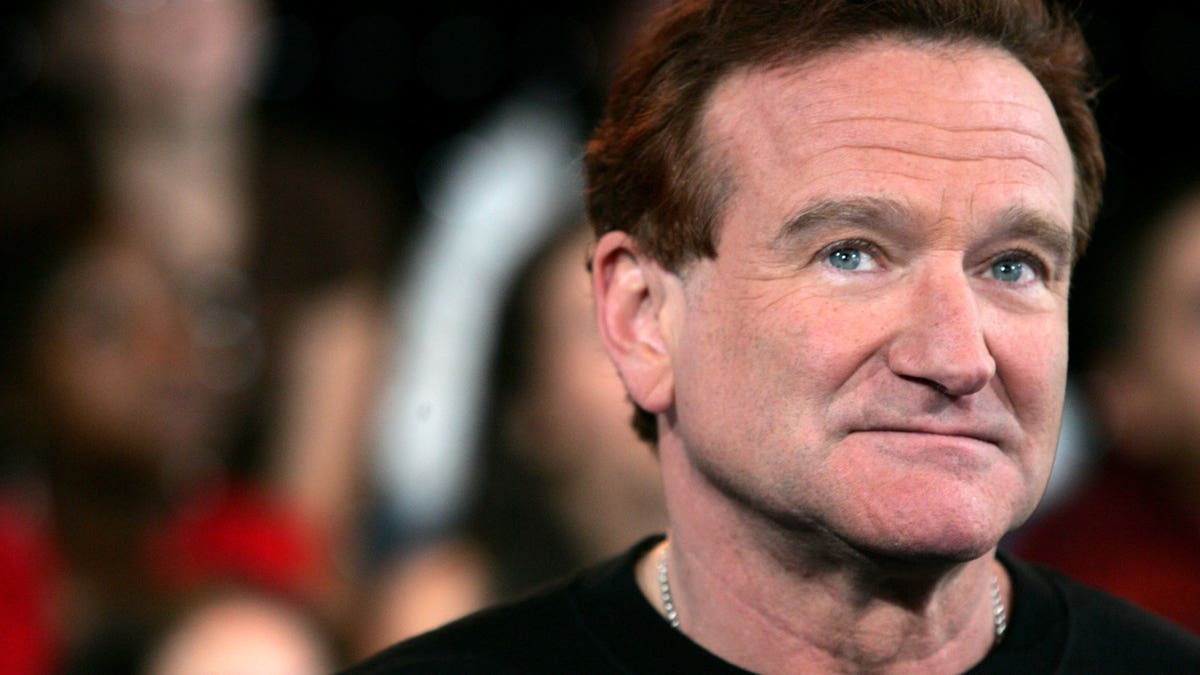
Robin Williams reportedly has a stipulation in his will preventing his likeness from being used for 25 years after his death, a prescient decision at the time. (Peter Kramer)
"It's really up to the artists to really protect their likeness, their image, and really where it gets a little tricky for actors is it could be a whole performance, it could be a line, it could be something unique about them, not just a straightforward performance. That's where it's getting a little bit foggy. But the good news is they have some data to actually have a conversation and make some decisions."
CLICK HERE TO GET THE FOX NEWS APP
Ruby agrees that a celebrity must be on top of their contract game to protect their likeness, and even then, it’s no guarantee.
"If a celebrity signed away the rights to their image to someone who wants to use it to make AI generated pornography, unfortunately, they are no longer able to influence the decision if they are deceased. This is why a celebrity must clearly stipulate all creative parameters including use of new technology while they are still alive to account for all options."

